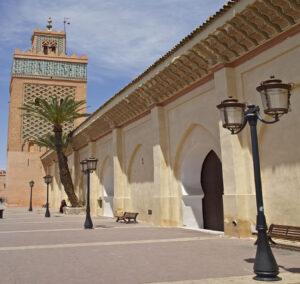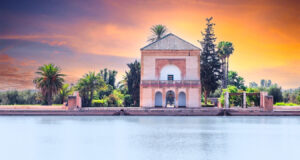Pros and cons of Marrakech holidays
This article examines the pros and cons of holidaying in Marrakech. Known as the Red City, Marrakech, offers an exotic holiday experience that combines a rich history, vibrant culture, and a unique lifestyle. Its fascinating heritage sites, bustling markets, and thriving gardens make it a perfect holiday destination.
However, there are some drawbacks that would-be travellers need to consider before making a holiday decision. This guide provides them with a balanced view of what to expect from a Marrakech holiday, helping them make an informed decision.
Pros of Marrakech holidays
Cultural heritage
One of the significant advantages of Marrakech holidays is the city’s rich cultural heritage. Marrakech is a melting pot of cultures, with influences from Berber, Arab, and French civilizations. This cultural diversity is evident in the city’s architecture, food, music, and lifestyle, offering a unique and inspiring experience to visitors.
Historical places
Marrakech boasts a plethora of attractions that cater to different interests. For example, Koutoubia Mosque, the Bahia Palace, El Baadi Palace, Menara Gardens, and Ben Youssef Madrasa offer a glimpse into the city’s rich past.
 Koutoubia Mosque
Koutoubia Mosque
Horse carriage tour
A horse carriage tour takes visitors through the streets of Marrakech to experience the city’s historic center, lush plants, and ancient and modern architecture. Tourists often blend into the city’s unique atmosphere along the way.
The price for a 45-minute horse carriage tour is usually 250 Moroccan Dirham (Approximately £20 GBP/$25 USD). One carriage can accommodate up to 5 people. It is worth mentioning that some people may not like horse carriage tours due to the concerns of animal welfares.
Quad biking
Quad biking offers an amazing experience. Apart from the thrilling biking itself, it offers amazing photo opportunities with a stop along the way to take refreshment and enjoy the desert expanse. Visitors should book in advance and note that prices may vary depending on the operators and duration of the event.
Camel ride
Camel rides are a must for visitors! Camel riding spots are available in many different parts of the city. Please note that prices may vary depending on the number of people, duration, and operators providing the service.
Prices could be anything from 200 Moroccan Dirham to 700 Dirham. Haggling is indeed the norm here, so visitors should come prepared. The camel riding spot near The Menara Gardens offers a very reasonable price and amicable service. Here, the price for one camel with two riders is usually 200 Dirham, while for one rider is 150 Dirham.
Vibrant markets/souks
One of the major advantages of Marrakech holidays is the city’s vibrant markets, known as souks. One of the famous souks, Souk Semmarine, located just off Jemaa el Fnaa, is a shopper’s paradise offering a wide range of products, from traditional Moroccan handicrafts and textiles to spices, jewelry, and leather goods.
Shopping in these markets is not just about buying things. It is also an experience in itself, where tourists can interact with local artisans, learn about traditional crafts, and even haggle over prices! Jemaa el-Fnaa, is the city’s iconic square, known for its lively atmosphere, food stalls, and street performers.
Natural beauty
One of the key pros of Marrakech holidays is the opportunity to dive into natural beauty. Certainly, Marrakech is an amazing city from the perspective of scenic beauty. Beautiful gardens, mountains, fountains, deserts, and many more mesmerize tourists and locals alike.
Other activities
Tourists can take a day trip to the Ourika Valley where they can enjoy a riverside lunch, shopping, and go up the mountain to see the source of water. Likewise, those who love adventure should take a day trip to the Atlas Mountains, where they can enjoy hiking, mountain biking, or horse riding.
 Menara Gardens
Menara Gardens
Cons of Marrakech holidays
Chaotic traffic
One of the main disadvantages of Marrakech holidays is the city’s chaotic traffic. Navigating the busy roads can be a challenge, especially for first-time visitors. The narrow streets, crowded with cars, motorbikes, bikes, and pedestrians, can be overwhelming and stressful.
Motorbikes are often dangerous and are an unbearable nuisance. Especially, in and around Jemaa el-Fnaa, bikers show little or no concerns for pedestrians. Visitors must pay extra attention while walking down the streets and crossing roads.
Intense heat
Another con of Marrakech holidays is the city’s intense heat, especially during the summer months. The high temperatures can be uncomfortable, making it difficult to explore it during the day. It is essential for tourists to stay hydrated and protect themselves from the sun when visiting Marrakech during this period.
Food issues
Though Marrakech offers a variety of local and international cuisines, many visitors find some cuisines somewhat bland. In addition, to avoid holiday sickness, visitors should avoid dairy products, and tap water (Cyrus, and Howard, 2023). They also need to be careful about having salads and ice in water.
Over-crowding
Marrakech can be crowded, especially during peak tourist seasons. The bustling souks and popular attractions can get crowded, leading to long queues and a lack of personal space. This can be a turn-off for travellers who prefer a more relaxed and serene holiday experience.
Safety concerns
Marrakech is generally a very safe city. However, visitors should be aware of pickpocketing and other petty crimes. Strangers may sometimes either approach them or interject when they are trying to get to a place or get a service and ‘offer’ their help. This may sometimes lead to scams and or personal safety issues.
Haggle culture
Bargaining is very common in Marrakech. While this may appeal to some tourists, it can take its toll after a while.
Deceptive practices
Some restaurants may charge customers for what they have not ordered for! Therefore, asking for an itemized bill is always recommended. Likewise, some vendors and taxi drivers may use deceptive and aggressive tactics to rip people off.
Comparing the pros and cons of Marrakech holidays
When comparing the pros and cons of Marrakech holidays, it is crucial for visitors to consider their preferences and what they are looking for on a holiday. While the city’s vibrant culture, bustling markets, and scintillating attractions are definite pluses, the chaotic traffic, intense heat, and crowded places can be drawbacks.
However, these cons can be managed with proper planning and preparation. For instance, visitors can avoid the summer heat by visiting during the cooler months. They can also beat the crowds by visiting popular attractions early in the morning or late in the afternoon. Moreover, getting around the city can be made easier by hiring a local guide (preferably recommended by the hotel where the visitors stay for safety reasons).
Tips for planning a Marrakech holiday
Planning a Marrakech holiday requires careful consideration to ensure a pleasant and rewarding experience. One of the key tips is to plan the visit during the cooler months, such as spring or autumn, to avoid the intense summer heat. Also, the Islamic holy month of Ramadan should be considered when many establishments may have restricted opening hours.
Another tip for visitors is to familiarize themselves with the local customs and traditions. Furthermore, it is essential to plan the itinerary very well. Marrakech offers numerous attractions which cannot be visited in a week. Therefore, the visitors need to plan what they want to see and do based on their interests and the duration of their stay.
The best time to visit Marrakech
The best time to visit Marrakech is during the spring (March to May) and autumn (September to November). During these periods, the weather is pleasantly warm, making it ideal for sightseeing and exploring the city. Moreover, these are low tourist seasons, meaning fewer crowds and better deals on accommodation and flights.
The summer months (June to August) can be swelteringly hot, with temperatures often exceeding 40 degrees Celsius. However, if visitors do not mind the heat, summer can be a great time to visit as well. In fact, many people like visiting Marrakech in August due to minimal rainfall or none.
The winter months (December to February) can be cold, especially at night. Therefore, a jacket is advisable (Met Office UK, 2023). Likewise, rainfall in January tends to be higher than any other month.
Marrakech holiday checklist
A Marrakech holiday checklist can be a handy tool to ensure that visitors do not forget anything important. Here are some things to include in your checklist:
- Moroccan visa: British citizens do not need a visa to enter Morocco for the purpose of tourism for up to 3 months (UK Gov, 2023). Likewise, citizens of Australia, New Zealand, USA, EU, Canada, and some other nations do not need a visa either.
- Valid passport: Depending on the country of origin, the passports of tourists should be valid for 3 to 6 months. At least one page of the passport should remain blank for entry and exit stamps.
- Travel insurance.
- Hotel booking confirmation: Marrakech airport officials may sometimes ask for hotel booking confirmation documents.
- Flight tickets/Boarding pass: Boarding passes for airlines such as Ryanair and easyJet should be printed off before the flight. Please note that Marrakech airport requires tourists to print off their boarding passes before arriving at the airport on return journey.
- Local currency (Moroccan Dirham): Tourists should convert some of their money to Moroccan Dirham to pay the taxi fare and buy a local sim card. Sim cards can be purchased in Euro as well. A typical Sim card can cost around 20 Euro which is valid for a month.
- Guidebook or map of Marrakech: Printed maps are not usually necessary if visitors are comfortable with Google maps and have access to the Internet. While hotel Wi-Fi can sometimes be slow, local sim cards offer very fast access to the Internet.
- Basic phrases in Arabic or French (the two main languages spoken in Marrakech). Some people in Marrakech are also able to communicate in English.
- Appropriate clothing (Morocco is a liberal Muslim country, so modest clothing is recommended.
- Sunscreen and hat.
- Vaccines: As things change rapidly, would-be visitors should consult their local doctors/pharmacists who can talk them through the potential health risks at Marrakech to check if any vaccines/medication are indeed necessary.
Conclusion: Pros and cons of Marrakech holidays
In conclusion, Marrakech holidays offer a unique and enriching experience that combines a rich cultural heritage, vibrant markets, and a variety of activities. While there are certain drawbacks, such as the chaotic traffic and intense heat, these can be managed with proper planning and preparation.
We hope you like this article: Pros and cons of Marrakech holidays? You may also like:
Advantages and disadvantages of living in London
Benefits of buying a house in the USA
Last update: 15 August 2023
References:
Cyrus, C., and Howard, L. (2023) Holiday sickness index 2023, available at: https://www.forbes.com/uk/advisor/travel-insurance/holiday-sickness-index/ (accessed 10 August 2023)
Met Office UK (2023) Marrakech weather, available at: https://www.metoffice.gov.uk/weather/travel/holiday-weather/africa/morocco/marrakech (accessed 11 August 2023)
UK Gov (2023) Morocco, available at: https://www.gov.uk/foreign-travel-advice/morocco/entry-requirements (accessed 11 August 2023)
Author: M Rahman
M Rahman writes extensively online and offline with an emphasis on business management, marketing, and tourism. He is a lecturer in Management and Marketing. He holds an MSc in Tourism & Hospitality from the University of Sunderland. Also, graduated from Leeds Metropolitan University with a BA in Business & Management Studies and completed a DTLLS (Diploma in Teaching in the Life-Long Learning Sector) from London South Bank University.



